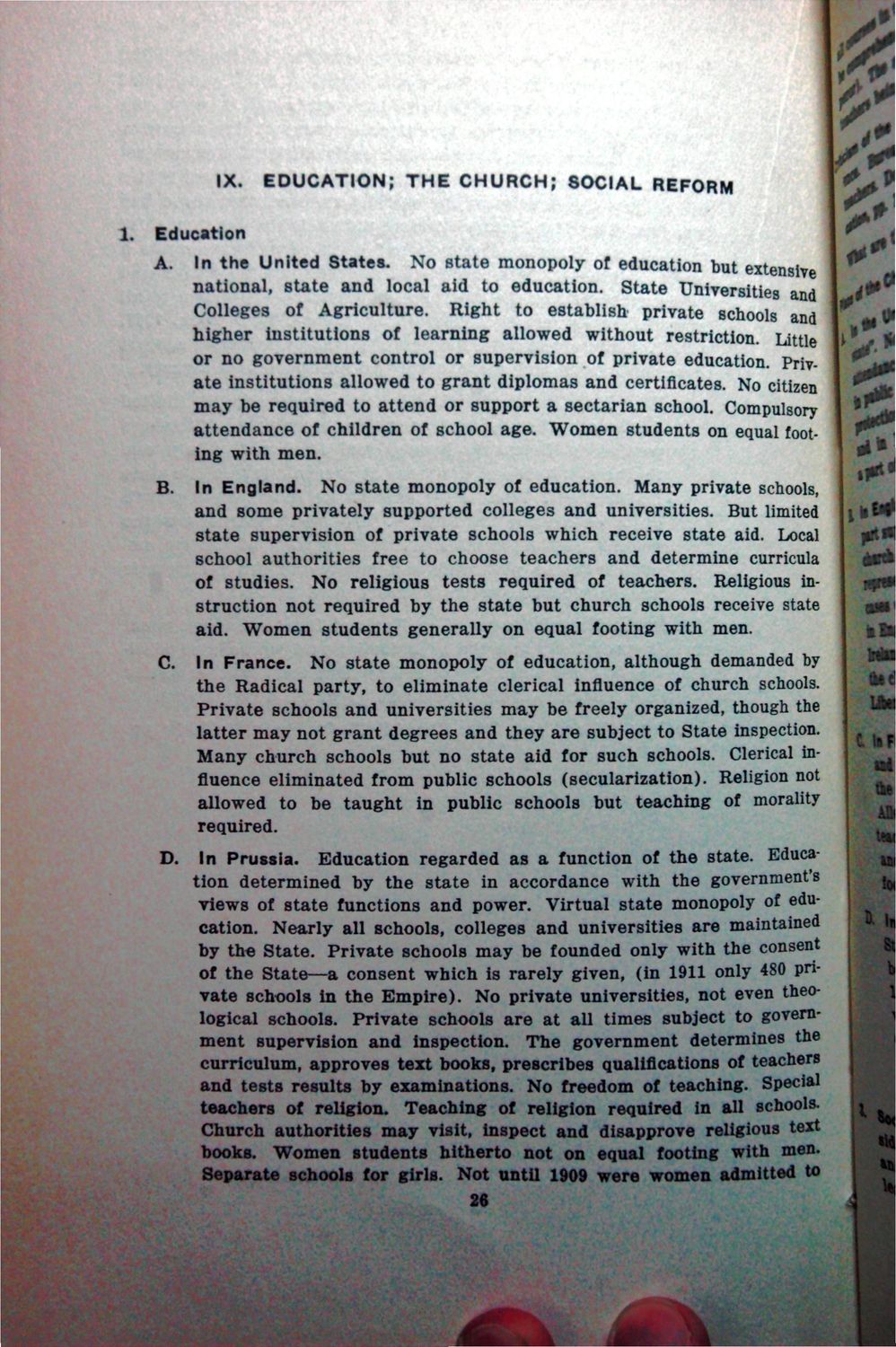| |
| |
Caption: War Publications - WWI Compilation 1923 - Article 48
This is a reduced-resolution page image for fast online browsing.

EXTRACTED TEXT FROM PAGE:
IX. Education EDUCATION; T H E C H U R C H ; SOCIAL REFORM | A. In the United States. No state monopoly of education but extensive national, state and local aid to education. State Universities and Colleges of Agriculture. Right to establish private schools and higher institutions of learning allowed without restriction. Little or no government control or supervision of private education. Private institutions allowed to grant diplomas and certificates. No citizen may be required to attend or support a sectarian school. Compulsory attendance of children of school age. Women students on equal footing with men. In England. No state monopoly of education. Many private schools, and some privately supported colleges and universities. But limited state supervision of private schools which receive state aid. Local school authorities free to choose teachers and determine curricula of studies. No religious tests required of teachers. Religious instruction not required hy the state hut church schools receive state aid. Women students generally on equal footing with men. In France. No state monopoly of education, although demanded by the Radical party, to eliminate clerical influence of church schools. Private schools and universities may be freely organized, though the latter may not grant degrees and they are subject to State inspection. Many church schools but no state aid for such schools. Clerical influence eliminated from public schools (secularization). Religion not allowed to be taught in public schools but teaching of morality required. In Prussia. Education regarded as a function of the state. Education determined by the state in accordance with the government's views of state functions and power. Virtual state monopoly of education. Nearly all schools, colleges and universities are maintained by th« State. Private schools may be founded only with the consent of the State—a consent which is rarely given, (in 1911 only 480 private schools in the Empire). No private universities, not even theological schools. Private schools are at all times subject to government supervision and inspection. The government determines the curriculum, approves text books, prescribes qualifications of teachers and tests results by examinations. No freedom of teaching. Special teachers of religion. Teaching of religion required in all schools. Church authorities may visit, inspect and disapprove religious text books. Women students hitherto not on equal footing with men. Separate schools for girls. Not until 1909 were women admitted to 26 B. C. D.
| |